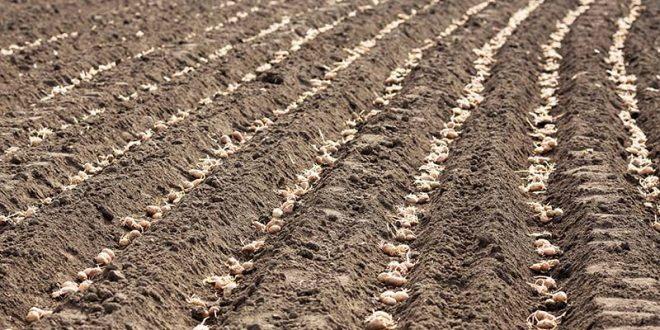Due to a crisis in imported quality seed varieties, right now it’s impossible to meet the demand for high-grade processed potato products in Bangladesh.
Bangladesh farmers continue to cultivate potatoes based on contract farming and important quantities of their produced tubers are then redirected to the processed products sector, according to a recent article published by The Business Standard. In this respect, improved varieties of seeds are being imported from different European countries.
Even so, a sufficient quantity of improved potato varieties required for processing is still not being produced in Bangladesh.
Khurshid Ahmad Farhad, general manager of Bombay Sweets & Company Limited, declared during the “Increasing Potato Processing” conference held recently at Bangladesh Agricultural Research Council (BARC) that last season he got only 39 metric tons of seed, but their need is “greater”.
“We are not getting enough seeds to meet demand. If we cannot increase the production of improved varieties of potatoes, the production of processed products will not increase. Furthermore, if production is not in accordance with Good Agriculture Practices (GAP), exports cannot be increased,” he added.
Md Mahatab Uddin, chief operating officer of Pran Agro Business Ltd, said potato seeds are imported from various countries including the Netherlands, Canada, and Germany.
“We are making various products from potatoes, including chips, biscuits, French fries, starch, frozen food, and snacks. But we are processing only 60,000 tons of potatoes, where at this stage, we should have been processing 200,000-300,000 tons of potatoes,” Uddin said, cited by the same press source.
“Cost of Producing Potatoes in Bangladesh is High, but the Quality is Poor”
During the same event, entrepreneurs and exporters said the cost of producing potatoes in the country is high, but the quality is poor. These sources said that the country needs to import seed varieties that will double production, or at least so that potato being produced on 500,000 hectares of land can be produced on 400,000 hectares. This will reduce production costs and help capture the export market.
Bangladesh Agricultural Research Institute has developed 25 potato varieties, according to the Department of Agriculture Marketing, but it is taking a long time for these varieties to reach the country’s farmers.
In this respect, Bangladesh Agriculture Minister, Dr. Md Abdur Razzak, mentioned that the country couldn’t enter the Russian market due to disease in potatoes.
“If we can focus on making processed products, it will be very profitable as there is a huge demand for processed products from potato at home and abroad. We do not have the potato varieties we need to make high-quality products, though the private sector is bringing in many varieties, and production is increasing. But to expand the export market we need to bring in effective varieties quickly. This will reduce costs by increasing productivity. If it is possible to produce good quality starch from potatoes in the country, the agriculture ministry will take steps to increase the tax on imports,” he added.
Private sector entrepreneurs and Bangladesh government officials met recently for discussions at “Increasing Potato Processing” at the Bangladesh Agricultural Research Council (BARC). The event was jointly organized by the agriculture ministry and the Department of Agriculture Marketing.
The potato is one of the most important crops in Asia, contributing to the food security and incomes of millions of families. Asian farmers produced almost 196 million metric tons of potatoes in 2017—about half of the global harvest.
An International Potato Center (CIP) report published in 2018 assessed the adoption rates of 491 improved potato varieties released in Bangladesh, China, India, Indonesia, Nepal, Pakistan, and Vietnam between 1952 and 2015. Researchers determined that 210 of those varieties had been adopted by farmers and occupied 97% of the land dedicated to potatoes in those countries.







